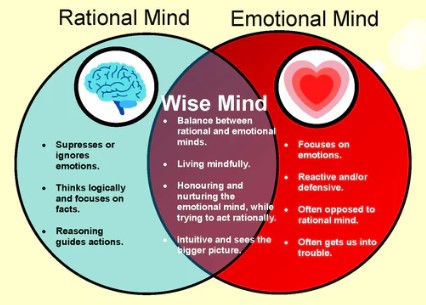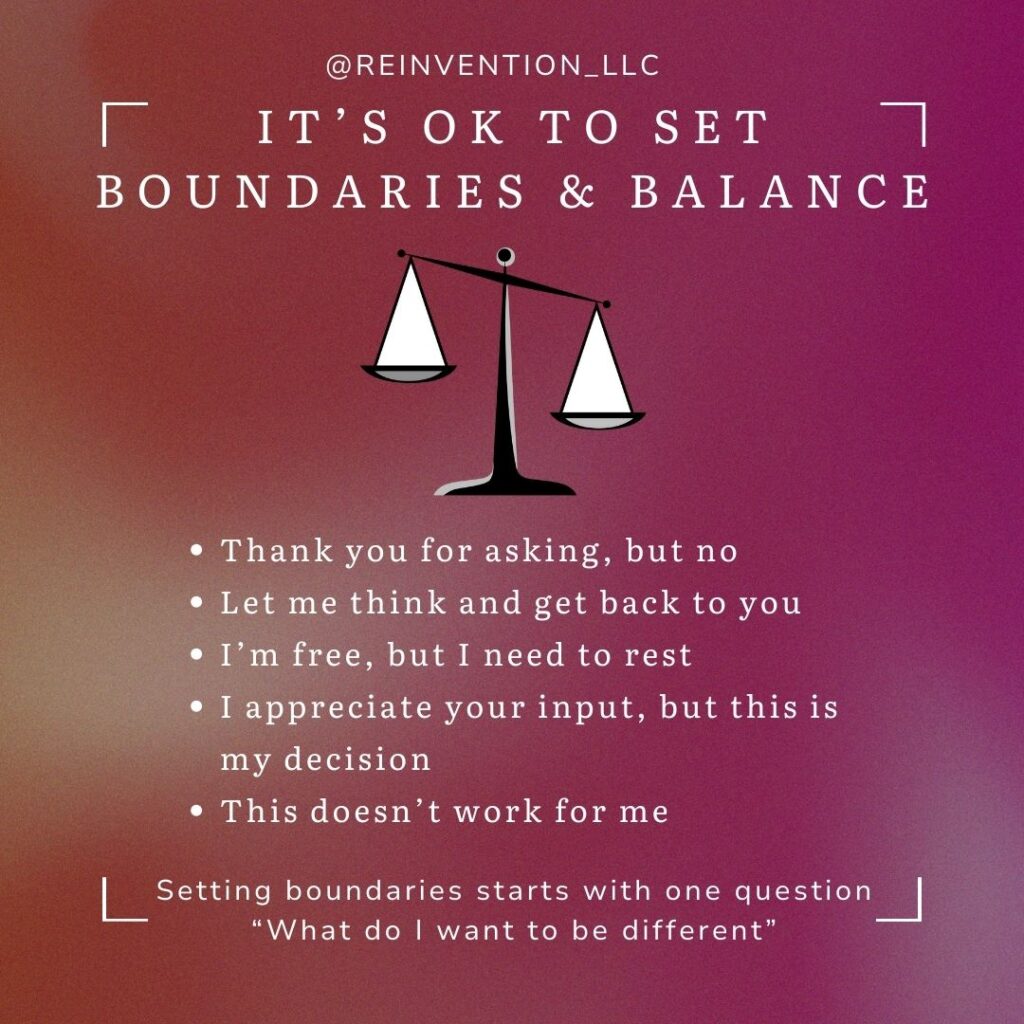Balance & Boundaries
April 6, 2025
“God, grant me the serenity to accept the things I cannot change, the courage to change the things I can and the wisdom to know the difference.” I didn’t embrace these words and live by them until I found recovery. Living in balance and having boundaries is possible, but not always easy.
I know today that I can’t change people, places or things, no matter how hard I try or might love them. Acceptance is the first and most pivotal practice to creating balance, boundaries and stress reduction.
Accepting the things I cannot change. If I can’t change people, places and things then how do I disengage in the habit of trying? I needed a tool or a way to help me stop focusing my energy on external problems in a misguided attempt to control (feel safe), be liked or respected (self-worth) and provide value (purpose).
In a meeting I attend regularly, someone shared a tool they use for not reacting or engaging in areas of their life they can’t control or change in the first place. This clicked for me immediately and I started using these questions for practically every choice I had to make.
Does this need to be done or said?
Does this need to be done or said now?
Does this need to be done or said by me?
Asking myself this when I wanted to respond to an annoying or difficult person helped me realize the answer was to not respond. It didn’t’ need to be said, said now or said by me. This is a boundary.
When someone asked me to volunteer for something, I asked myself do I need to do this and even more importantly do I want to do this. Most of the time the answer was no. This is a boundary.
When I became stuck thinking about a problem or working on a task for hours. I learned to stop and think does this really need to be done now or at all. This is a boundary.
Courage to change the things I can. What can I change? What do I want to be different? This was easier to figure out once I accepted and stopped trying to change all the people, places and things that were taking up most of my time.
Change requires self-reflection, awareness, honesty, and an open mind. I had to be willing to look at the internal patterns of my behavior, reactions, interactions and habits. This isn’t easy and I’ve found it also takes help. Having an outside perspective, connection to others doing similar work on themselves or a therapist is a huge part of real change and growth.
The type of change I’m referring to here is not picking up a new healthy habit, although those are great. This is internal work. Challenging of everything I think I know and a readiness to try something totally different to achieve the changes I want in myself.
Here are some of the areas I looked at to know myself better and figure out who I want to be:
- What are my values? Am I living those in word and action?
- What types of people, places and things feel enjoyable?
- What do I do when my old ways of thinking, coping and reacting crop up?
- What do I enjoy doing, what makes me happy?
- Where do I want to spend my time? What type of self-care will I prioritize first every day? What type of work do I want to do? What type of relationships do I want to have?
This courage to change is a journey. It is never completed. The relationship with myself is the most important one I will ever have.
Wisdom to know the difference. This is where I grow and practice living in a new way. Prioritizing differently, making choices that align with my values and purpose and setting boundaries to achieve those goals is how I feel contentment, peace, joy and happiness.
Living in recovery from anxiety, depression and substance-use disorder means I’m a person prone to extremes. The “wise mind” in Dialectical Behavior Therapy (DBT) where emotional thinking and rational thinking are balanced is another way to look at wisdom.
Today, I get to live in balance and that is sustainable. It allows me to be kinder to myself and others. It allows me to manage stress and not become overwhelmed. Anytime I start to feel any of the symptoms of stress, I can reflect on where I am in the moment and access the serenity prayer. Accept the things I cannot change, the courage to change the things I can and the wisdom to know the difference.
April is Stress Awareness Month. If you would like to manage stress better or identify what might be causing you stress, I can help. Please schedule a free 30-minute conversation here.
@Reinvention LLC, 2025, All Rights Reserved

